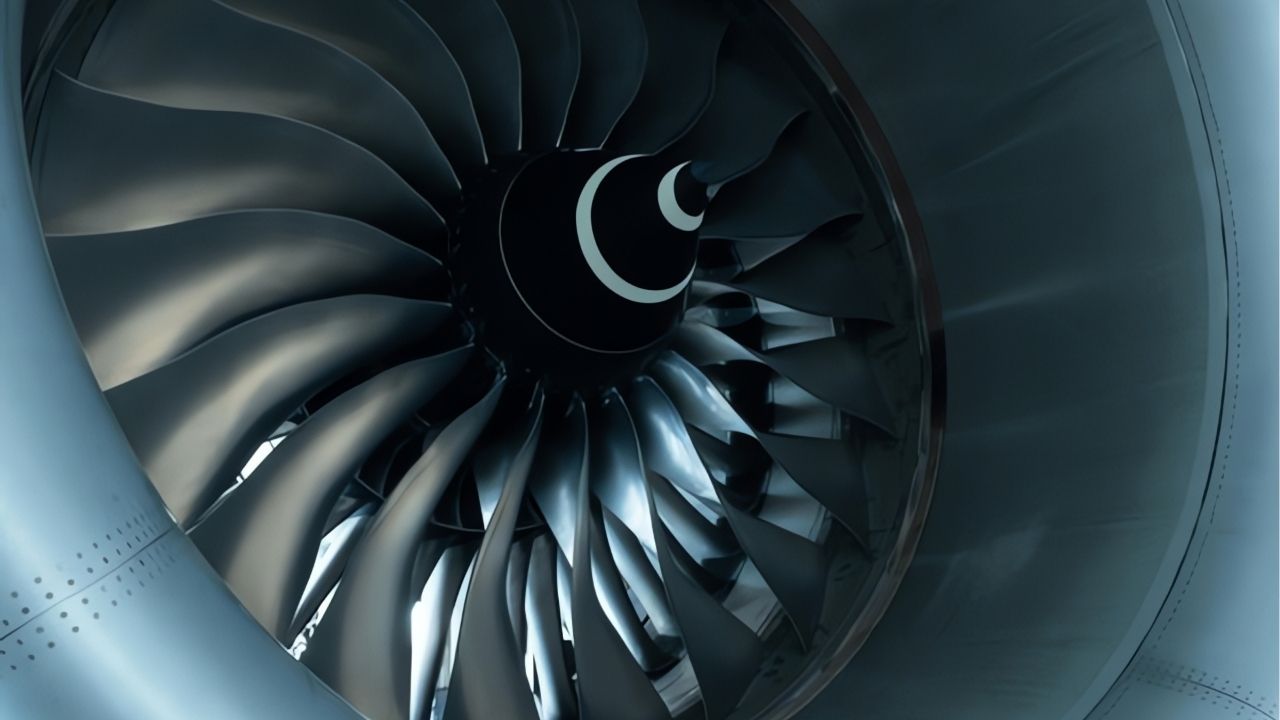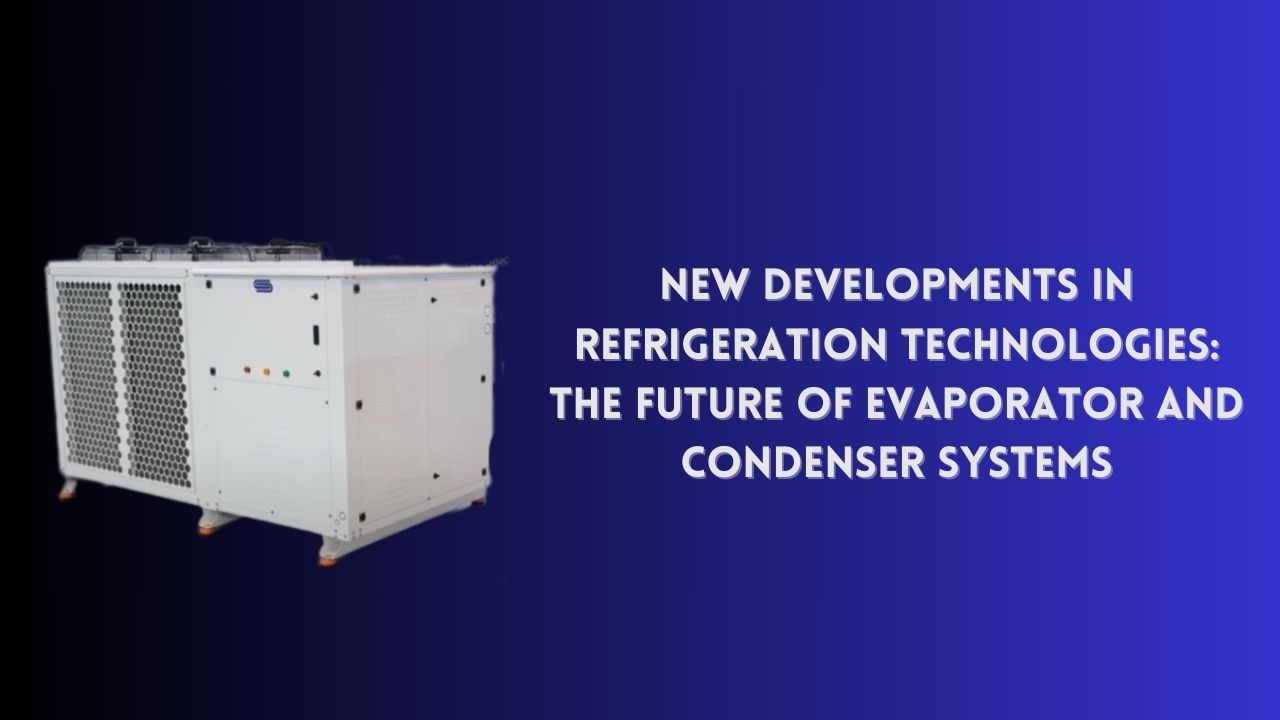
Bearing and Motor Maintenance Service for Axial Fans


Cooling systems are constantly evolving with innovative engineering methods and designs. Especially in recent years, research in this field has allowed the development of smaller and more compact systems. The materials used have also undergone a major change to make designs more efficient. These materials are specially selected to provide better heat transfer and less energy consumption. In order to make cooling systems environmentally friendly, new generation fluids with low GWP (Global Warming Potential) and ODP (Ozone Depletion Potential) levels have begun to be used.
These innovative designs in industrial cooling systems have a significant impact on both increasing efficiency and reducing operating costs. Cooling solutions, especially integrated into HVAC (Heating, Ventilation and Air Conditioning) systems, demonstrate high performance in different sectors. New designs allow users to achieve higher efficiency with less energy. In this process, it is also of great importance to maintain the balance between aesthetics and functionality. In the future, the development of more flexible and versatile cooling systems will increase the pace of innovation in industries.
Modular cooling systems stand out as another innovative solution that provides flexibility in the field of industrial cooling. These systems are structured with modules that can be customized and expanded according to users' needs. While each module provides a specific cooling capacity, additional modules can be added or removed as needed. This feature provides a great advantage, especially for facilities with variable production capacity. Modular systems provide energy efficiency and also minimize maintenance costs. In addition, the maintenance and management of cooling systems becomes much simpler, since each module can be monitored independently and intervened when necessary.
Modular structures allow industrial cooling systems to become more flexible. These systems, which can be adapted to different sectoral needs, offer great convenience to the user both during and after the installation phase. Such systems will become more widespread in the future and will increase the efficiency of industrial facilities. Modular systems will play an important role in reducing operational costs and reducing environmental impacts. Modular cooling systems continue to be rapidly adopted in many sectors as they offer efficient solutions in terms of both cost and time.

Temperature control is of critical importance in industrial cooling systems. Temperature monitoring systems enable instantaneous monitoring of temperatures during the cooling process and allow rapid intervention in case the system encounters any problems. These systems instantly monitor the performance of cooling devices using sensors and digital monitoring platforms. Technologies that allow users to monitor devices with remote access make management processes more efficient. Such systems increase the overall efficiency of businesses with optimizations that increase the energy efficiency of devices.
The use of temperature monitoring systems in cooling systems is of great importance, especially in the food and pharmaceutical industries. In these sectors, temperature controls must be carried out constantly to preserve the products in a healthy way. Digital monitoring systems also collect data and make reports, so businesses can make healthier decisions. Thanks to advanced monitoring systems, the status of the devices can be monitored in real time and precautions can be taken before any malfunction occurs. This significantly reduces maintenance costs in the long run. Real-time monitoring and analysis ensures high safety and quality in cooling processes, as well as increasing efficiency.
Artificial intelligence and machine learning add a new dimension to the maintenance processes of industrial cooling systems. Artificial intelligence-supported systems can predict possible malfunctions in devices and ensure timely maintenance. This increases the overall efficiency of the system while ensuring uninterrupted operation. By analyzing historical data, machine learning algorithms predict future malfunctions and maintenance planning is made according to these predictions. In this way, unwanted malfunctions are prevented and the life of the system is extended. Thanks to these technologies, businesses can maintain efficient operations for longer periods of time at less cost.
AI-supported cooling systems also allow users to optimize maintenance processes. For example, artificial intelligence algorithms that monitor a device's temperature values send an alert when it detects an abnormal situation. Thanks to these warnings, intervention is made before the device causes a possible malfunction. Thus, businesses gain advantages in terms of both efficiency and security. Artificial intelligence also analyzes energy consumption and offers solutions that will provide lower energy consumption. These developments not only provide great cost savings in the long term, but also minimize the environmental impact of businesses.
The development of industrial cooling systems is done in a way that will benefit not only businesses but also societies. Developing environmentally friendly systems is of great importance for the sustainability of societies. Such efforts aimed at achieving zero carbon targets provide a cleaner and healthier environment for societies. Sustainable cooling systems enable important steps to be taken to reduce energy consumption and provide environmentally friendly solutions. These solutions also offer financial benefits to businesses in the long term, because energy efficient systems reduce operating costs.
Within the scope of social responsibility, the use of environmentally friendly materials in cooling systems is encouraged. These materials help reduce greenhouse gas emissions and protect nature. Businesses' environmentally friendly production by adopting sustainable solutions not only enables them to make profits but also provides social benefits. Such practices make it possible for future generations to live in a cleaner world. Industrial cooling systems contribute to the development of societies with this environmentally sensitive approach. Innovative studies in this field allow important steps to be taken for a healthier world in line with both environmental and social responsibilities.
The efficient operation of industrial cooling systems depends on minimizing energy consumption. Energy efficient cooling methods reduce the energy costs of businesses and minimize the environmental impact. These methods aim to increase energy efficiency by using advanced compressor technologies and refrigerants that provide lower energy consumption. Such systems increase the operational efficiency of businesses, providing both financial gain and environmentally friendly solutions. Efficient cooling systems are further optimized with the advancement of technology and lower energy consumption is achieved.
Energy efficient cooling systems allow users to achieve the same performance by consuming less energy. Such innovations in cooling systems help to significantly reduce energy consumption in industrial facilities. These systems also allow businesses to fulfill their environmental responsibilities by reducing their carbon footprint. Increasing efficiency not only provides cost savings to businesses, but also contributes to a more sustainable production process. Therefore, ensuring energy efficiency will be an issue that will become more prominent in cooling systems in the future.
One of the factors that play an important role in the development of industrial cooling systems is the advancement of fluid technologies used. Fluids form the basis of cooling processes and directly affect cooling efficiency. New generation fluids help cooling systems consume less energy by providing higher efficiency at low temperatures. Such fluids are environmentally friendly and prevent the release of harmful gases into the atmosphere. At the same time, the life of the fluids is extended, ensuring that the systems operate efficiently for a longer period of time. These technologies make significant contributions to reducing environmental impacts in the cooling industry.
Newly developed refrigerants have optimized chemical compositions to increase energy efficiency. These fluids can operate with high efficiency even at lower temperatures. The effect of fluids on cooling systems is of great importance. Thanks to developing technologies, the fluids used in cooling systems are becoming more efficient, safer and environmentally friendly.

Fill out the form to discover the most suitable high-end products for your projects. Contact Us Now.